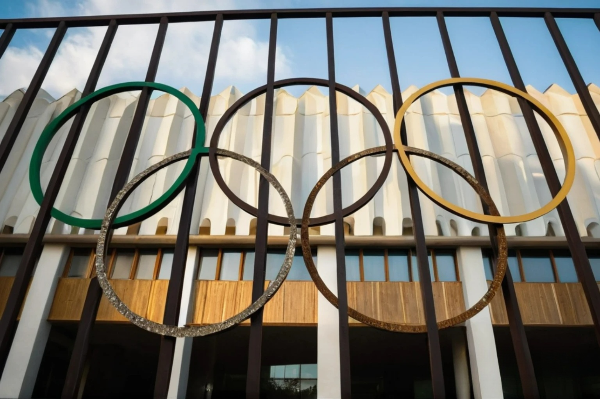Iran’s Plan to Strike Back Against the U.S.
Iran’s Military Preparations Following U.S. Attacks
Loading...

Over the years, thirteen countries have faced bans from participating in the Olympics due to reasons such as war, doping, political stances, or violations of International Olympic Committee (IOC) rules.
Israel's National Football Team Faces Hostile Reception at Paris Olympics
As Israel’s national football team took the field for their opening game of the 2024 Summer Olympics in Paris on Thursday, their national anthem was met with boos from sections of the audience. Chants of “free Palestine” echoed through the stadium.
Israel’s 88 athletes are among more than 10,500 competitors from around 200 countries participating in the Olympics, which formally kick off with the opening ceremony on Friday. In Paris, Israeli athletes will receive round-the-clock protection from a specialist elite unit of French police, in addition to their own enhanced security measures.
The country’s participation in the games amid its war on Gaza, which has resulted in over 39,000 deaths, has drawn criticism towards Olympic organizers, who have a history of banning nations deemed to have committed acts that contravene the spirit of the games. This year, Russia and Belarus are absent due to the ongoing war in Ukraine.
Those calling for a ban argue that Israel, accused of genocide by South Africa in its case at the International Court of Justice, must face the consequences of its actions.
Countries Previously Banned from the Olympics
Several countries have faced bans from the Olympics over the years:
1920 Antwerp Games: Germany, Austria, Hungary, Bulgaria, and Turkey were banned due to their involvement in World War I.
1924 Paris Games: Germany was again banned as an extension of the previous ban.
1948 London Games: Germany and Japan were banned due to their roles in World War II.
1964-1992: South Africa was banned due to its apartheid regime.
1972 Munich Games: Zimbabwe (then Rhodesia) was banned due to international pressure over its policies of racial segregation.
2000 Sydney Games: Afghanistan was banned due to the Taliban’s stance on women. In 2024, Afghan athletes are competing under the flag of the Islamic Republic of Afghanistan, not the Taliban’s flag.
2016 Rio de Janeiro Games: Kuwait was suspended due to government interference in its Olympic committee, leading Kuwaiti athletes to compete as independent Olympic athletes under the Olympic flag.
2022 Beijing Winter Games: North Korea was banned for withdrawing from the 2020 Tokyo Olympics, violating the Olympic Charter.
2016, 2018, 2020 Games: Many Russian athletes were barred from competing due to state-sponsored doping.
Countries Banned from the 2024 Olympics
Russia and Belarus are banned from the 2024 Paris Olympics due to their involvement in the ongoing Ukraine war. However, 15 athletes from Russia and 18 from Belarus are set to compete as “Individual Neutral Athletes” (AINs), according to the International Olympic Committee (IOC).
What is the AIN Classification?
Competing under the AIN classification means that Russian and Belarusian flags, national anthems, and uniforms will not be allowed at the Paris Games. AINs are athletes with Belarusian or Russian passports who are confirmed as eligible and invited to compete at the Olympics based on quotas and specific eligibility requirements determined by the International Federations (IFs).
The 33rd edition of the Olympic Games in Paris will feature 329 events across 32 sports and will be held from July 26 to August 11.
Iran’s Military Preparations Following U.S. Attacks
Troops remain in five strategic locations, raising fears of renewed tensions and long-term occupation.
Opposition forces have taken control of the capital after a significant offensive. Here is how it unravelled.
